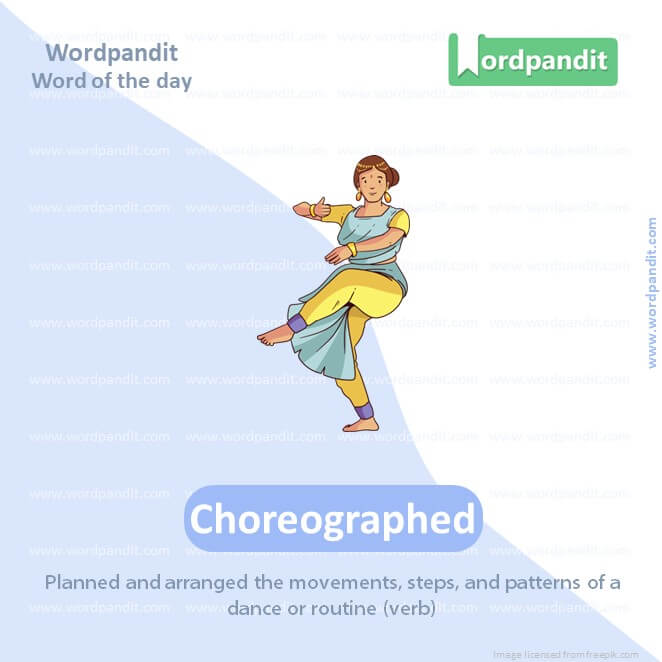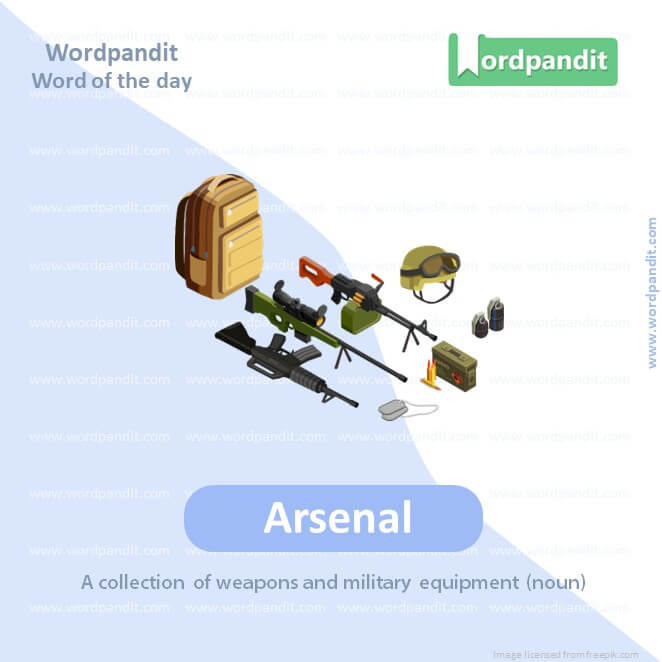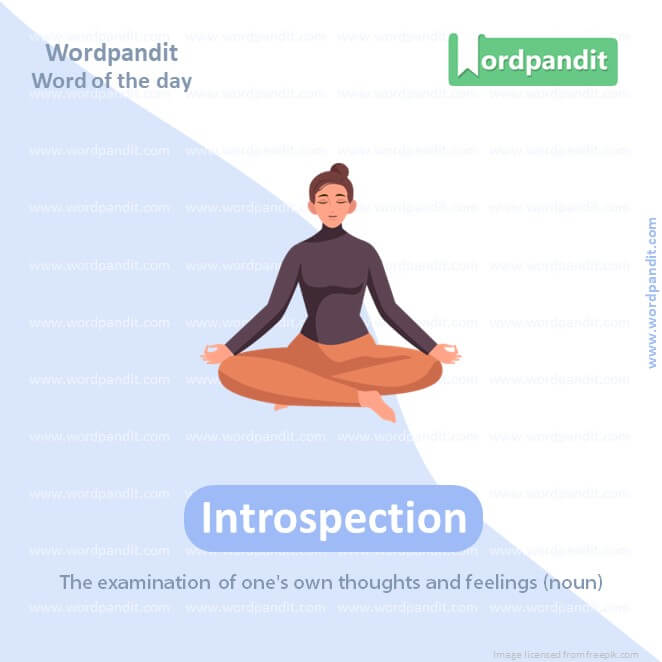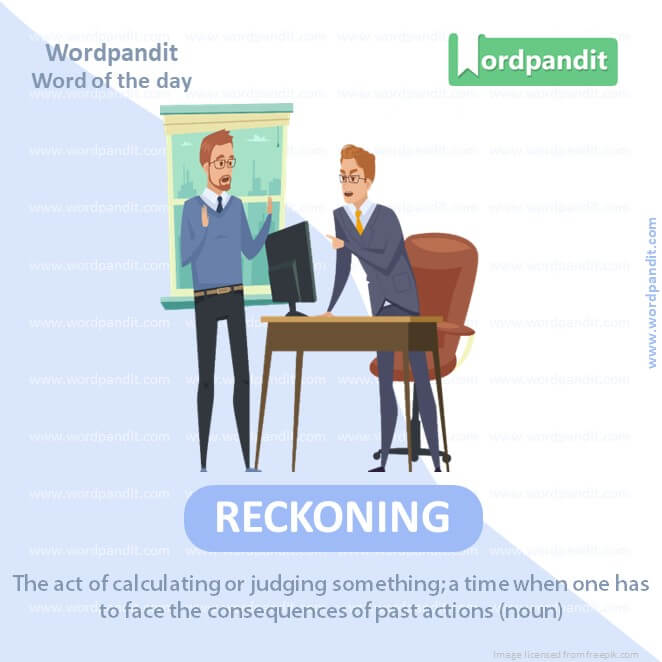Daily Vocabulary Words: Enhance Your Lexicon with Leading Newspapers & Publications
Welcome to the Daily Vocabulary section at Wordpandit!
Our mission is straightforward: to bring you essential vocabulary words featured in top newspapers and publications worldwide. By focusing on words you’ll encounter in renowned sources, we aim to help you enhance your vocabulary effectively and practically.
Our selection includes words from:
– The New York Times
– The Washington Post
– Scientific American
– BBC
– The Guardian
– Psychology Today
– Wall Street Journal
– The Economist
– The Hindu
– The Times of India
– The Economic Times
– Hindustan Times
– Live Mint
– The Indian Express
– And many more.
We are committed to your vocabulary development. Simply visit this section regularly and explore the daily posts. This is your go-to repository for commonly used words, providing significant practical benefits by familiarizing you with vocabulary from the leading publications listed above.
Make it a habit to visit our website daily and expand your lexicon with words from top newspapers and publications.
WORD-1: PUPPET
CONTEXT: The choreographed rallies, puppet rivals, and Potemkin village polling stations are not subtle counterfeits designed to be mistaken for the genuine article.
SOURCE: The Guardian
EXPLANATORY PARAGRAPH: A “puppet” is like a toy that looks like a little person or animal, and you can make it move using your hands or strings. You might see puppets in shows where they talk, dance, or play, even though someone else is controlling them from behind or above.
MEANING: A model of a person or animal, manipulated by hand or strings for entertainment purposes (noun).
PRONUNCIATION: PUHP-it
SYNONYMS: marionette, doll, figure, manikin, effigy, plaything
USAGE EXAMPLES:
1. The puppet show at the party made all the kids laugh.
2. She used a puppet to tell the story more creatively.
3. His favorite toy was a puppet he could control with strings.
4. Puppet making is a popular craft activity at summer camps.

WORD-2: CHOREOGRAPHED
CONTEXT: The choreographed rallies, puppet rivals, and Potemkin village polling stations are not subtle counterfeits designed to be mistaken for the genuine article.
SOURCE: The Guardian
EXPLANATORY PARAGRAPH: “Choreographed” means that someone planned out every move in a dance or a show. It’s like when you arrange your toys in a certain way to play a game, but here, dancers follow steps that someone thought up so everyone moves together nicely.
MEANING: Planned and arranged the movements, steps, and patterns of a dance or routine (verb)
PRONUNCIATION: kuh-REE-uh-graft
SYNONYMS: arranged, designed, planned, orchestrated, coordinated, structured
USAGE EXAMPLES:
1. The dance was beautifully choreographed, with every dancer moving in perfect harmony.
2. He choreographed the fight scenes for the movie.
3. The opening ceremony was choreographed to showcase different cultures.
4. The ballet was choreographed by a famous dancer.
WORD-3: ARTIFICE
CONTEXT: They are deliberately crass – a sneering mimicry that rubs people’s noses in the artifice of politics. The point is to discredit the idea that elections make a difference.
SOURCE: The Guardian
EXPLANATORY PARAGRAPH: “Artifice” is a tricky way to do something, like when you build a secret hideout in a game to surprise your friends. It’s using clever ideas to make something happen or to trick people.
MEANING: Clever or cunning devices used to deceive others (noun).
PRONUNCIATION: AHR-tuh-fiss
SYNONYMS: trickery, deceit, cunning, guile, craftiness, ruse
USAGE EXAMPLES:
1. He used artifice to win the game without others noticing.
2. The story was full of artifice and unexpected twists.
3. She admired the artifice behind the magic trick.
4. The plot involved a great deal of artifice and deception.

WORD-4: ARSENAL
CONTEXT: Cultivating contempt for democracy is one of the most powerful propaganda weapons in a despot’s arsenal.
SOURCE: The Guardian
EXPLANATORY PARAGRAPH: Think of “arsenal” like a big box where superheroes keep all their tools and gadgets to save the day. It’s a place or a collection where lots of different things are kept ready to use whenever needed.
MEANING: A collection of weapons and military equipment (noun)
PRONUNCIATION: AHR-suh-nuhl
SYNONYMS: armory, cache, stockpile, repertoire, storehouse, depot
USAGE EXAMPLES:
1. The country’s arsenal includes various types of missiles and tanks.
2. He has an arsenal of cleaning supplies in his garage.
3. The team’s arsenal of strategies helped them win the championship.
4. Her arsenal of skills made her an excellent candidate for the job.
WORD-5: GRASPS
CONTEXT: This is something Donald Trump grasps intuitively, making his participation in this year’s White House race exceptionally dangerous.
SOURCE: The Guardian
EXPLANATORY PARAGRAPH: “Grasps” means holding onto something tightly with your hands. It’s like when you grab your favorite toy so it doesn’t fall or someone else can’t take it.
MEANING: Seizes and holds firmly (verb); understands or comprehends (verb).
PRONUNCIATION: GRAH-sps
SYNONYMS: grips, clutches, clasps, holds, seizes, clings
USAGE EXAMPLES:
1. She grasps her mother’s hand while crossing the street.
2. He quickly grasps the concept in math class.
3. The baby grasps the toy tightly in her hand.
4. She grasps the importance of being on time.
WORD-6: EXPUNGE
CONTEXT: That delusion is no longer available. When Trump promises to expunge the “radical left thugs that live like vermin within the confines of our country”, it is a safe bet that he intends to follow through. If returned to the White House, he would use every executive lever to eliminate restraint on his power.
SOURCE: The Guardian
EXPLANATORY PARAGRAPH: “Expunge” is like erasing a drawing you don’t like anymore. It means to remove something completely, making it like it was never there.
MEANING: To erase or remove completely (verb).
PRONUNCIATION: ik-SPUNJ
SYNONYMS: erase, delete, obliterate, remove, wipe out, efface
USAGE EXAMPLES:
1. They decided to expunge the old records from the system.
2. He hoped to expunge the mistake from his record.
3. The bad data was expunged from the report.
4. Efforts were made to expunge all traces of the graffiti.

WORD-7: INTROSPECTION
CONTEXT: These are some of the big questions that always kick around at the start of January — happy new year, by the way! — a time for resolve and the serious introspection that (hopefully) precedes it.
SOURCE: The Washington Post
EXPLANATORY PARAGRAPH: “Introspection” is like taking a moment to think deeply about yourself. It’s when you think about your own feelings, why you do things, or what makes you happy or sad, kind of like thinking about why you chose your favorite color.
MEANING: The examination of one’s own thoughts and feelings (noun)
PRONUNCIATION: in-truh-SPEK-shuhn
SYNONYMS: self-reflection, self-examination, self-analysis, contemplation, soul-searching, self-observation
USAGE EXAMPLES:
1. During her quiet time, she engaged in introspection to understand her feelings better.
2. Introspection can help us learn more about ourselves.
3. The book encourages introspection about one’s life choices.
4. He found that introspection helped him cope with stress.

WORD-8: FLURRY
CONTEXT: Karen Tumulty is already asking the big question that usually comes after the flurry of resolve and reinvention: Is this who we are?
SOURCE: The Washington Post
EXPLANATORY PARAGRAPH: Imagine a “flurry” like when snow falls quickly in swirling little pieces, filling the air and making everything look white. It’s a lot of something happening all at once, like a bunch of leaves blowing around in the wind.
MEANING: To move in a quick or busy manner (verb)
PRONUNCIATION: FLUR-ee
SYNONYMS: burst, gust, spurt, rush, blizzard, outburst
USAGE EXAMPLES:
1. A flurry of activity happened at the store during the sale.
2. Snow flurries made it difficult to see while driving.
3. There was a flurry of emails from the client this morning.
4. The announcement caused a flurry of excitement among the fans.
WORD-9: NEGATING
CONTEXT: For Karen’s beat, the question refers to national political identity. For years, Karen writes, the negating mantra of “this is not who we are” has been a constant inoculation against the ugliness of the MAGA movement.
SOURCE: The Washington Post
EXPLANATORY PARAGRAPH: “Negating” is like saying “no” to something. If someone says you can have candy and someone else says you can’t, the second person is negating what the first said. It means to make something not true or not effective.
MEANING: Nullifies or makes ineffective (verb).
PRONUNCIATION: nuh-GAY-ting
SYNONYMS: cancelling, nullifying, invalidating, voiding, reversing, counteracting
USAGE EXAMPLES:
1. His later success was negating the failures he had faced.
2. The new evidence negated the earlier assumptions.
3. She tried negating the effects of sleeplessness with coffee.
4. The contract has a clause negating any verbal agreements.

WORD-10: RECKONING
CONTEXT: Only an event as terrible as the Holocaust could paper over this schism, Moser writes. But uncovering those old divisions today, he argues, is key to reckoning with what Zionism and the opposition to it really are.
SOURCE: The Washington Post
EXPLANATORY PARAGRAPH: “Reckoning” is like counting or figuring out something important. It can be about numbers, like when you count your toys, or it can be about thinking carefully about something, like deciding if something was fair.
MEANING: The act of calculating or judging something; a time when one has to face the consequences of past actions (noun)
PRONUNCIATION: REK-uh-ning
SYNONYMS: calculation, estimation, computation, judgment, appraisal, assessment
USAGE EXAMPLES:
1. They are at the final stages of reckoning the total cost of the project.
2. His reckoning was that the team would win.
3. The ancient mariners used the stars for reckoning their position at sea.
4. A day of reckoning for his actions was inevitable.
Vocabulary Importance
In the realm of language learning, understanding ‘vocabulary importance’ is a fundamental concept. Words are the building blocks of language and a rich vocabulary fuels effective and persuasive communication. However, embracing ‘vocabulary importance’ involves more than just acknowledging its role – it requires you to integrate it into your learning strategy.
To truly grasp ‘vocabulary importance’, expose yourself to a variety of reading and listening activities. Whether it’s reading novels, engaging with podcasts, or watching films in your the profound impact of having a robust vocabulary arsenal and will illuminate the practical ‘vocabulary importance.’
Additionally, recognizing ‘vocabulary importance’ necessitates an active approach to vocabulary acquisition. Regularly dedicate time to learning new words. Use flashcards, word lists, language apps, or even set a ‘word of the day’ to maintain a steady flow of vocabulary learning.
Incorporating the learnt vocabulary into your speech and writing is non-negotiable when understanding ‘vocabulary importance’. Regular usage not only enhances vocabulary retention, but it also uncovers the magic of eloquent expression that a blossoming vocabulary can yield.
It’s also beneficial to lean on memory aids in recognizing ‘vocabulary importance’. Associating words with images, stories or personal anecdotes creates strong memory hooks, enhancing vocabulary recall and solidifying the understanding of ‘vocabulary importance’.
To sum it up, ‘vocabulary importance’ is not just a theory to be noted, but a mantra to be embraced in your language learning journey. Engage with a wide variety of resources, actively learn and use new words, and utilize effective recall techniques. As you uncover the depths of ‘vocabulary importance’, you’ll realize that every new word is a fresh shade on your language palette, painting your communication canvas with hues of eloquence, clarity, and confidence.











